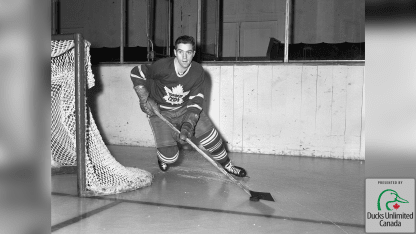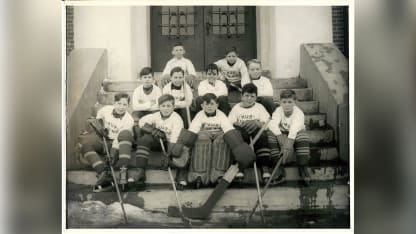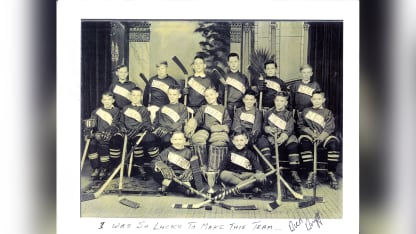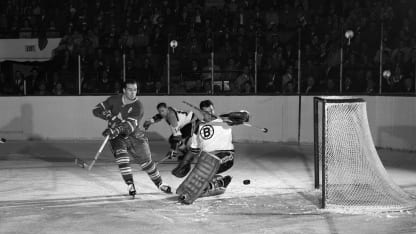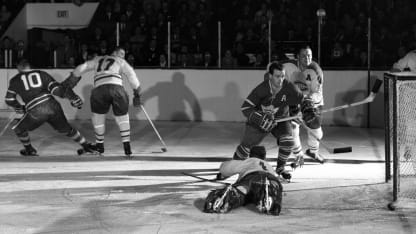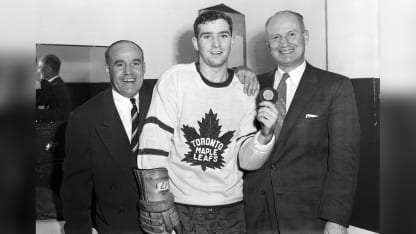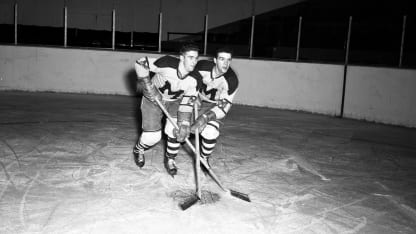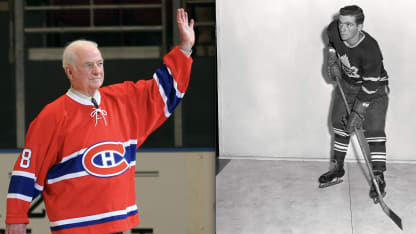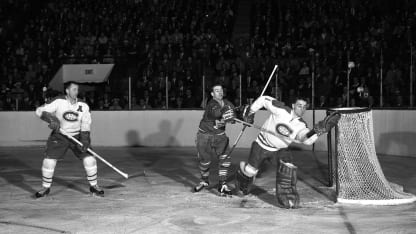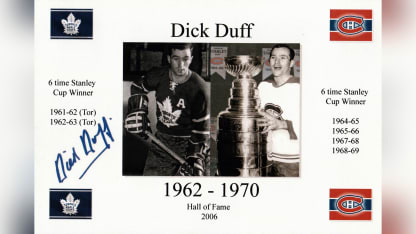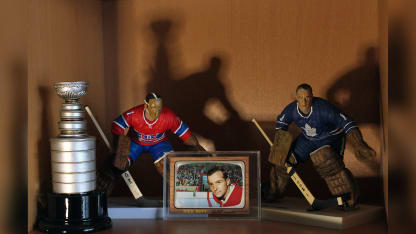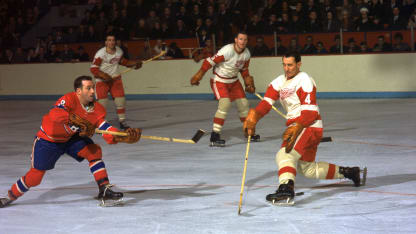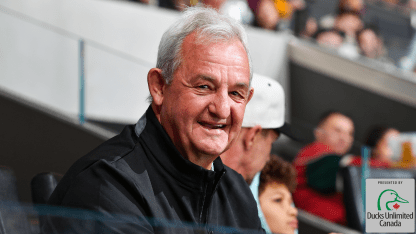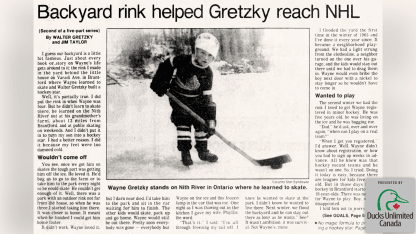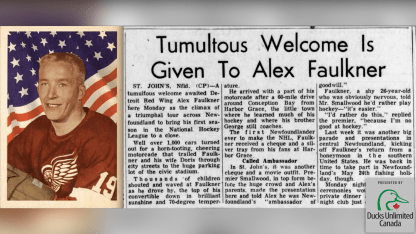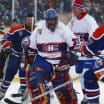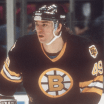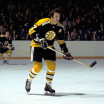The NHL and conservation non-profit Ducks Unlimited Canada are teaming up to tell stories of current and former NHL players and how access to community ponds and the outdoors helped shape their love for the sport. Today, a visit with Dick Duff, who happily reflects on his youth playing outdoors in frosty Kirkland Lake, Ontario on his way to a Hall of Fame career that would see him win the Stanley Cup six times:
That Dick Duff doesn’t still have frostbite is a minor miracle.
It was on the outdoor rinks of bone-chilling Kirkland Lake in northern Ontario that Duff, now 89, played scholastic hockey and hours-long pick-up games, staples of his youth.
From his home in Mississauga, Ontario, about 15 miles from Toronto, Duff reflects today on frozen fingers and toes and his remarkable journey through a career that in 2006 would enshrine him in the Hockey Hall of Fame.
“We had the perfect climate in Kirkland Lake,” Duff recalled, some of his night games surely played beneath the shimmering curtain of the northern lights. “We were always outside. Every school had its own rink, and the boards seemed like they were 15 feet high. Everybody would put their skates on in the rink shack with a fire going.
